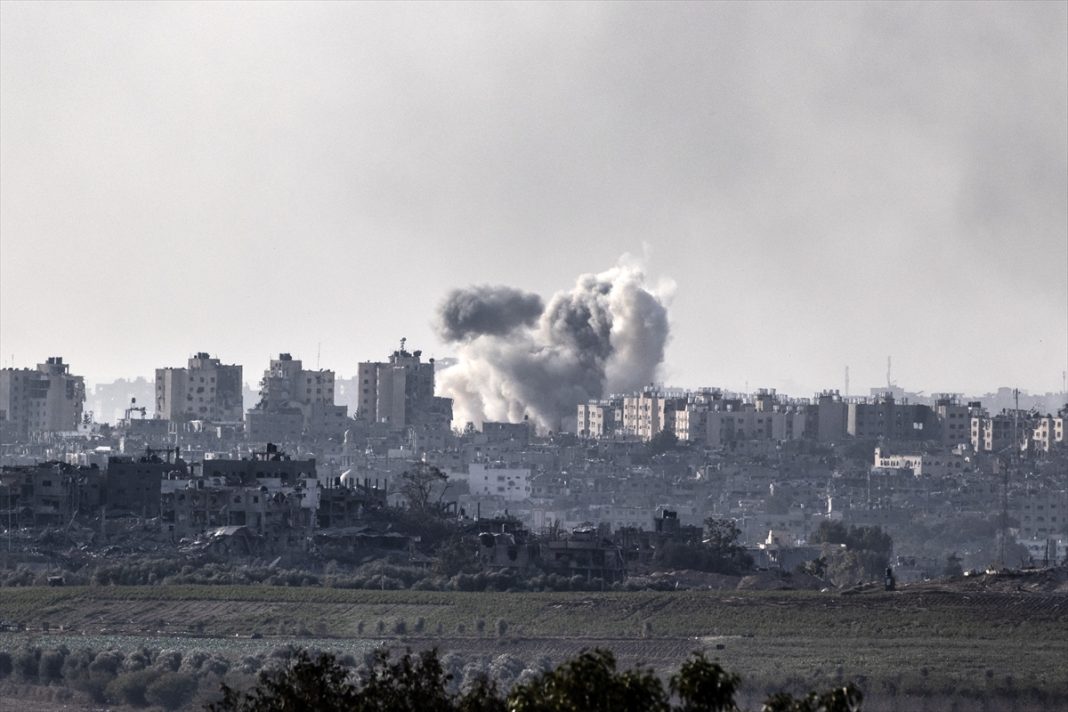By Janet Ekstract NEW YORK – In a briefing on Wednesday, Coordinator for the Middle East and North Africa at the National Security Council (NSC) Brett McGurk updated the media on where a ceasefire-hostage negotiations deal stands right now. McGurk labeled the deal a “complex arrangement” and said it includes three primary components: Humanitarian benefits for Gazans, a hostage exchange for Palestinian prisoners and Israel’s military pullout and the third phase would include the rebuilding of Gaza. The components that McGurk mentioned include the plan that U.S. President Joe Biden laid out in his May 31 televised TV address from the White House. McGurk told the press that “90% of the deal” has been agreed to but there are still some areas of contention between Hamas and Israel that need to be worked out. McGurk said that the first phase of the deal would include 600 trucks of humanitarian aid moving into Gaza unlike the previous deal, last November where just 200 trucks of humanitarian aid were permitted into Gaza.
McGurk also explained that along with the 600 aid trucks there will also be 50 trucks carrying fuel with the immediate entry of equipment to “clear rubble” and to begin the process of rebuilding all infrastructure in Gaza. He added that temporary homes will be set up for those internally displaced along with a plethora of supplies to support displaced Palestinians. McGurk said as soon as the agreement is signed off on, that Phase One of the deal would take effect immediately. McGurk said that the issue of the prisoner exchange has been challenging and that “We spent most of last week on this issue in Doha.” He further stated that the prisoner exchange is a “central component” of the deal and that, “We now have fewer hostages because six hostages were executed and something we have to take account of.” McGurk added, “It’s more urgent even after this weekend” to get the hostages freed but cautioned, “this requires Hamas to engage on it, otherwise you can’t move forward.” He warned “The execution of hostages over the weekend, called into question Hamas’s readiness to do a deal at anytime.”
He said there was a dispute about the Philadelphi Corridor and said in the Phase One of the deal that there will be a temporary withdrawal of Israeli troops from all densely populated areas along that corridor. McGurk said the “Israelis produced a proposal” two weeks ago, where they would significantly reduce their presence along that corridor but cautioned that “You don’t have a deal until there’s an agreement.” The two major sticking points McGurk said have been the issues of the prisoner exchange and the Philadelphi Corridor. He also said that “We’re working together with Egypt and Qatar on a prisoner exchange package and that is where we have been and where we are.” McGurk emphasized that this deal is “the most viable, perhaps the only viable option for saving the lives of the hostages, stopping the war and saving the lives of Gazans.”
The issue of Israel’s security has been bandied about in the media and McGurk said he wanted to set the record straight by stating “We have taken account of Israel’s security concerns in this negotiation” – he said that remarks from Israeli ministers that this deal would threaten Israel’s security is not true. In fact, McGurk said “if anything, I would argue that not getting into this deal would harm Israel.” As McGurk concluded, “Ultimately, the final decision maker is Sinwar,” referring to Hamas head Yahya Sinwar and McGurk added “that was true” when Haniyeh was in charge “and it’s true now.”




